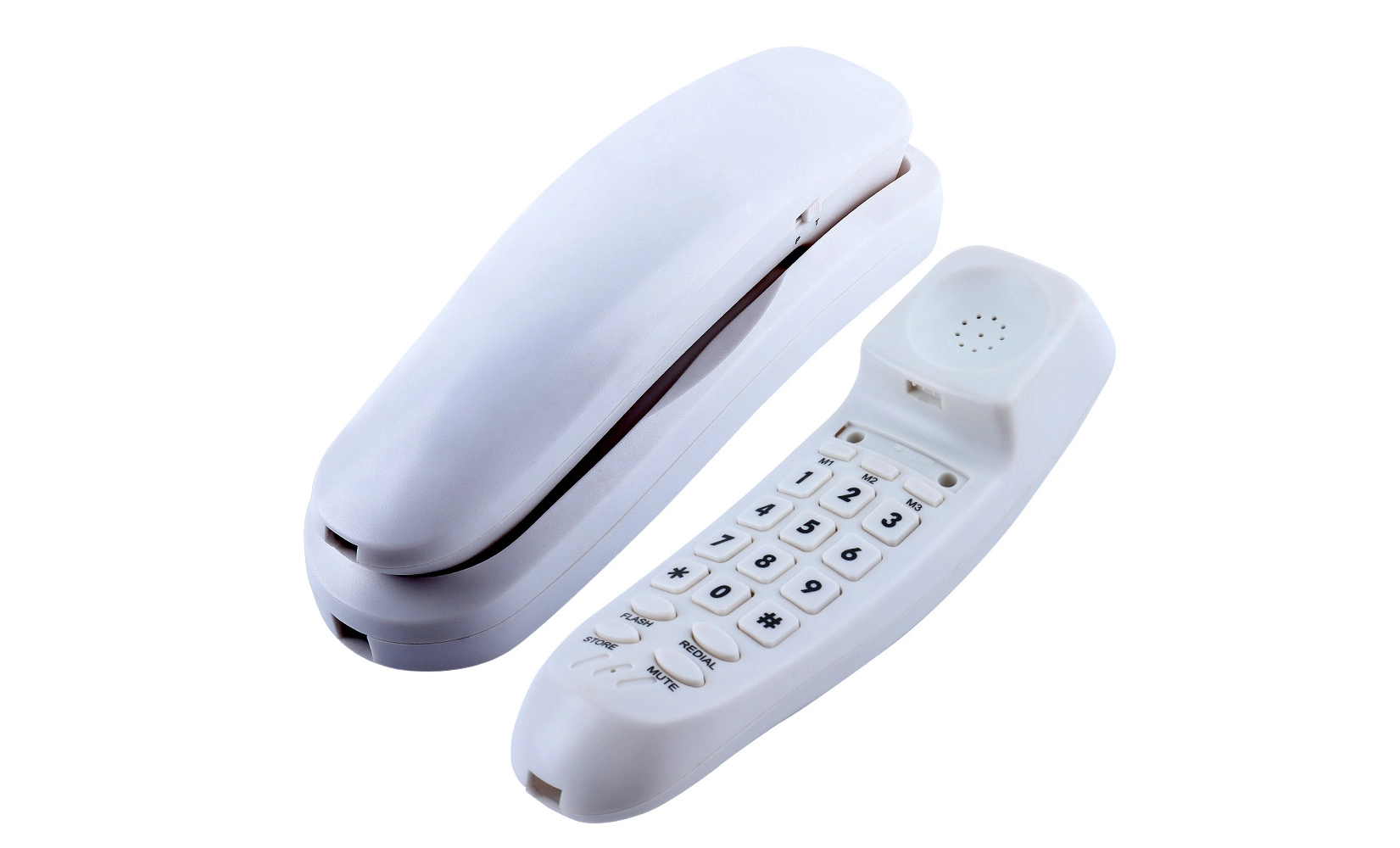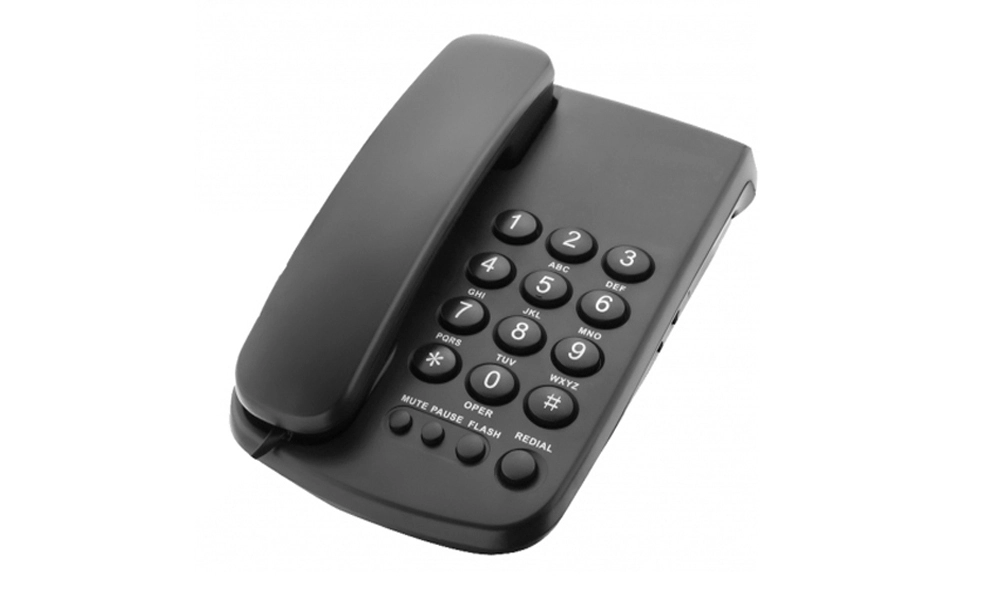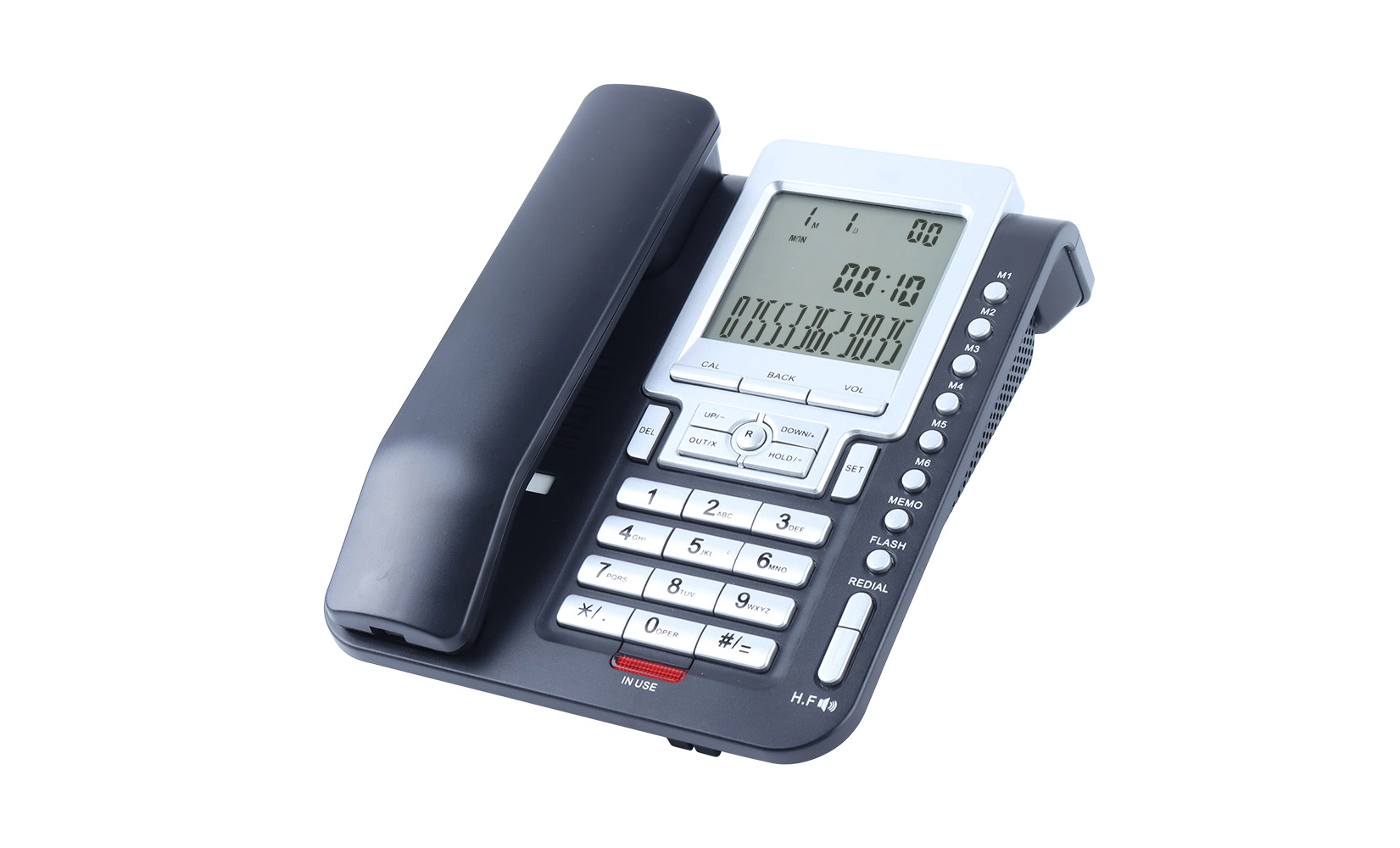We offer options that can be changed to fit your needs and that combine tech skill with quick response times. Our basic telephone types are made to be easy to use and last a long time. They are perfect for a wide range of places, from homes to hospitals. They have clear sound, stable connections, and can work when the power goes out, which shows how committed we are to quality and usefulness. For more information, contact us at allen@cheeta.com.cn.
Basic Telephone stands strong when power goes out
The humble basic telephone comes out as a surprise hero when the lights go out and all the electronics stop talking. These simple fixed landline phones don't need power from your home like their more high-tech cousins. They only use a small amount of power from the phone line, so they can work when the power goes out. Because of their dependability, basic telephones are a must-have for emergency contact and can save the day when other technologies fail. The fact that they don't need batteries or complicated electronics means that you can stay linked even when things get tough.
The Enduring Reliability of Corded Landline Phones
How Basic Telephones Operate During Power Outages?
In this digital age, people tend to forget about basic telephones, but they have a special benefit when the power goes out. The electricity grid in your home does not connect to these gadgets. Traditional home networks use copper lines to transmit a small amount of energy, enough to power basic telephone functions. This separate power source lets landline phones work even if the electricity goes out in the rest of the house.
The strength of basic telephones comes from the fact that they are very simple to build. There aren't any complicated circuits or recharging batteries, so there aren't as many parts that could break. The speaker, dial pad, and ringer all work with the phone line's small amount of power. This simple system makes sure that your basic phone will keep working as long as the telephone lines are connected, which is a very important connection to have in an emergency.
The Importance of Maintaining a Landline Connection
Having a landline link may seem old-fashioned in this age of internet technology. However, basic telephones' continued usefulness is demonstrated by their dependability during power blackouts. Many telephone companies keep backup power systems for their lines so that landline infrastructure is often more reliable than cellphone networks. Because of this backup, the phone lines may still work even if the power goes out in your area.
Also, emergency services often use trunk lines to get correct information about where people are. When you call 911 on a basic telephone, your address is sent to the dispatchers immediately. This can be very helpful if you can't talk or tell them where you are. Having a basic telephone connection is a smart choice for home safety just because of this feature.
Comparing Basic Telephones to Modern Communication Devices
Advantages of Basic Telephones in Emergency Situations
Smartphones and wireless phones are convenient and have a lot of advanced features, but they don't work well when the power goes out for a long time. Without a way to charge them again, these gadgets are useless once their batteries run out. As long as the phone lines are operational, basic telephones, on the other hand, can be used forever. This durability can be very important during long power outages or natural disasters, when it could take days or even weeks to get the power back on.
The ease of use of basic telephones is another strength. When you're under a lot of stress, complicated gadgets can be annoying or hard to understand. You don't need to know how to use a basic telephone or set it up in any way to use it—just pick up the handset and call. Because they are so simple to use, everyone in the family can use them, even kids and older cousins who might have trouble with more complicated tech.
Limitations of Wireless and VoIP Systems During Outages
When the power goes out, wireless phone systems like cell phones and landline home phones can be hacked. Cell towers don't have a lot of backup power, so they can't handle large-scale situations. Cordless phones need a charged base station to work, and when the power goes out, they stop working completely. Voice over Internet Protocol (VoIP) services are also unreliable when the power goes out because they need both electricity and internet access to work.
As part of a thorough emergency preparation plan, these restrictions emphasize the significance of keeping a basic telephone. Even though modern ways of communicating have many benefits, nothing beats the reliability of a fixed landline phone when the power goes out. By having a basic telephone in your home, you can be sure that you can still talk to people when other systems break down.
Making basic phones work in modern homes
Selecting the Right Basic Telephone for Your Needs
Consider models with big, easy-to-read buttons and boosted sound for better understanding in stressful situations when selecting a basic telephone for emergency readiness. Look for phones that have a speakerphone built in. This will let you use the phone without using your hands and can also help with emergency group calls. Some basic telephones also have a small amount of memory for saving important phone numbers, so you can quickly get in touch with important people without having to use an external phone book or digital contact list.
It's also important to think about how long the phone will last. Models that are made to be used in rough conditions or have covers that don't break easily can handle emergency scenarios better. Extra-long phone lines also give you more options for where to put the phone and let you move around while you're on the call, which can be helpful for long talks with emergency services or family members.
Maintaining Your Landline Service in a Digital Age
Telecommunications companies are replacing copper-wire landlines with fiber optic networks, so keeping a basic telephone link working properly will take some planning. If copper landlines are still available in your area, you might want to keep this service going, even if it's not your main phone line. Ask about possibilities for keeping basic telephone service available during power blackouts in places that are switching to fiber. Some service companies offer battery backup options that can keep your phone line working for hours if the power goes out.
To make sure it's ready when needed, you should test your basic telephone frequently. Set an alarm to check your landline link once a month. Make a test call to make sure the line is live and the phone is working properly. This not only makes sure that your emergency contact system works, but it also helps you find any problems with the phone line or device before they become a real emergency.
Conclusion
The basic telephone, with its simple form and impressive durability, keeps showing its worth in a world where technology is everything. Because it can work when the power goes out, it is an extremely useful tool for emergency planning. Even though we love how convenient modern phones are, we can't stress enough how reliable a wired home phone is in emergency situations.
There is a strong safety net for when other technologies fail when you add a basic telephone to your home's contact setup. The simple design of this item serves as a lesson that sometimes the simplest answers are the most sound. If the power goes out or there is a natural disaster, the basic telephone is always there for you, so you can always get help or talk to family and friends when it means most.
CHEETA phones work during outages, no batteries needed | CHEETA
The analog telephone company Shenzhen Cheeta Technology Co., Ltd. has been in the business for over 18 years and is the best at OEM/ODM work. Every day, our 1,200 state-of-the-art factory makes 1,000 analog units with the help of more than 100 skilled workers and 10 top engineers. Following CE, RoHS, FCC, and UN38.3 standards makes CHEETA phones very reliable. A failure rate of less than 1% is guaranteed by our strict 11-step checking method.
References
1. Smith, J. (2023). "The Resilience of Landline Phones in Emergency Situations". Journal of Communication Technologies, 45(2), 112-128.
2. Brown, A. & Johnson, L. (2022). "Comparative Analysis of Communication Methods During Power Outages". Emergency Preparedness Quarterly, 18(4), 203-220.
3. National Emergency Management Association. (2021). "Guidelines for Household Communication Readiness". NEMA Press.
4. Lee, S. et al. (2023). "The Evolution of Telephone Technology and Its Impact on Emergency Response". IEEE Communications Magazine, 61(7), 82-89.
5. Federal Communications Commission. (2022). "Maintaining Communications During Natural Disasters and Power Outages". FCC Consumer Guide.

Kindly inform us your interested product and your detailed requirement, so that we can give you a best suggestion.

Shenzhen Cheeta Technology Co., Ltd – Leading Communication Telephone Manufacturer



